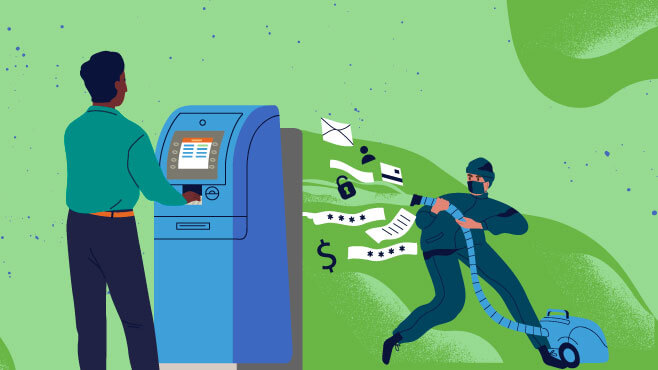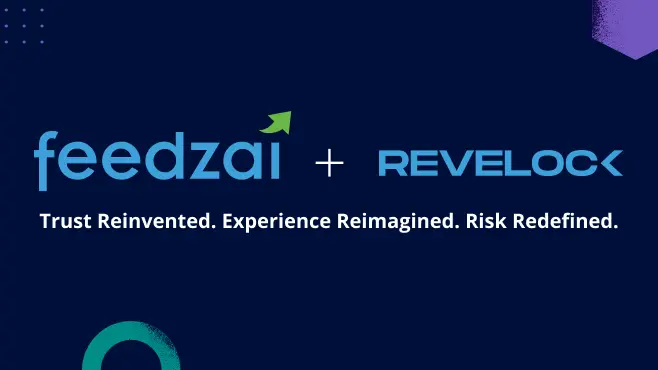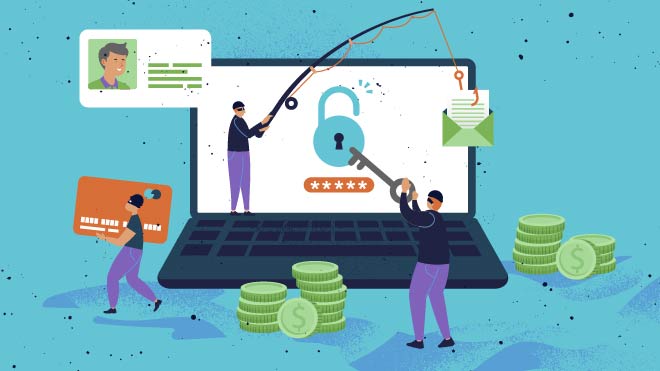
Feedzai’s top 10 blogs of 2021 offer a telling retrospective on the past year.
First, fraudsters took their layered attacks to new heights with credit card cloning, synthetic ID fraud, and romance scams. Meanwhile, banks faced new anti-money laundering challenges amid the resurgence of the Taliban in Afghanistan and an uncertain sanctions landscape. Finally, it was quite the year for Feedzai itself (not to toot our own horn!). We acquired the world’s most advanced behavioral biometric platform, launched the world’s first RiskOps platform, and our CEO shared a stage with some of the world’s top risk-takers.
Take a look back at our top stories from 2021.
Credit Card Cloning Fraud in 6 Minutes or Less
Credit card cloning – sometimes known as card skimming – is a type of credit card theft in which a fraudster creates a copy of a legitimate user’s credit card.
Why Feedzai’s Revelock Acquisition is a Game-Changer
Today, I’m beyond excited and proud to announce that we’re reinventing the financial services industry with our acquisition of Revelock, the world’s most advanced behavioral biometric platform. Feedzai’s acquisition of Revelock following a $200 million investment round earlier this year will forever change the way the financial services sector views Digital Trust and usher in a new era of secure, cashless commerce.
Introducing the World’s First RiskOps Platform
Change is inevitable. But the exponential rate of change we’ve recently experienced is extraordinary. Considering this, why are we approaching risk management in an old-fashioned, old-tech way? No, this is not another article hailing machine learning as new technology. This is something different entirely. Are you ready for the future? Because it starts right now.
Why Money Mules and Prepaid Cards Work Well for Criminals
Anyone who has ever received a prepaid card as a gift understands how easy it is to lose track of them in a wallet or a desk drawer. Unfortunately, fraudsters also see prepaid cards as a gift - and the fact that they can be hard to find is a feature of the product and not a bug. Especially when money mules are recruited to handle them.
What the Taliban Resurgence Means for Money Laundering
On August 15, much of the world watched with a mix of horror, shock, and sorrow as the Taliban rapidly regained control of Afghanistan after a 20-year war. Images of Afghan citizens clinging to airplanes in a desperate attempt to escape the militant group will be forever burned into our memories. Unfortunately, we could be witnessing just the beginning of Afghanistan’s troubles. The Taliban’s resurgence will likely open new avenues for money laundering activities and a host of atrocities that it supports.
Infographic: The 3 stages of the fraud lifecycle
A fraud attack doesn’t just happen all at once. In fact, a single fraud event includes several stages, each of which deserves its own scrutiny and study. As fraud attacks and data breaches become increasingly common, it’s important for banks and merchants to understand the full lifecycle of a fraud attack in order to prevent and detect them more effectively at every stage.
4 Sanctions Screening Challenges & How to Combat Them
The sanctions landscape is a minefield for financial institutions (FIs). Awareness of the risks and dangers involved with violating sanctions regulations is not enough. It’s a zero-sum game. That’s why employing sanctions screening solutions are more important than ever.
3 Tips for Banks to Catch Synthetic ID Fraud
In today’s digital-first environment where many interactions are virtual, even banks can get catfished - and we’re not talking about romance scams. As fraudsters increasingly resort to synthetic identity fraud to commit crimes, banks face a daunting question: how can they be certain that only real people use their services?
100 ft Wave, 230 MPH, 3000 ft Cliff – Risk Management through the Eyes of World Champions
Risk implies an uncertain outcome with the possibility of loss or injury. Sounds scary, doesn’t it? Yet, if we opted for zero-risk, we’d never leave our homes, never innovate, never achieve. This holds true for organizations as well. Without taking on calculated risk, organizations won’t grow, won’t succeed, and won’t break down barriers. It’s that last one - breaking down barriers - where risk pays off.
4 Ways Banks Can Prevent Romance Scam Heartbreaks
Valentine’s Day is around the corner which means the return of some familiar romantic tropes. Think red roses, heart-shaped chocolates, and another viewing of "The Notebook." But there’s another trend that banks should watch for whenever love is in the air: romance scams.
Download our eBook, Anti-Money Laundering: How to Protect Your Bank’s Brand & Bottom Line to prepare for some of the market’s most frustrating AML challenges.
Share this article:
Sanjay Salomon
Sanjay Salomon is an experienced journalist who has written for WGBH, US News & World Report, and Boston.com. He was a member of The Boston Globe’s Pulitzer Prize-winning team for Breaking News for coverage of the Boston Marathon bombing. Later, he became the Senior Writer at PYMNTS, extensively writing about digital fraud, banking, AML/KYC, cross-border commerce, and numerous other payment-related topics. As a Feedzaian, Sanjay loves storytelling and helping banks and financial institutions keep their customers safe from fraud and scams. He lives in New England with his wife and their two cats.
Related Posts
0 Comments6 Minutes
Latency in Machine Learning: What Fraud Prevention Leaders Need to Know
Latency is a critical factor in the performance of machine learning systems at financial…
0 Comments16 Minutes
How FIs Can Outsmart Bot Attacks
If life is like a box of chocolates, detecting bots is like baking a layered cake. Just…
0 Comments7 Minutes
Key Insights from the EBA’s 2024 Payment Fraud Report
The first European Banking Authority’s (EBA) 2024 Inaugural Report on Payment Fraud is a…










